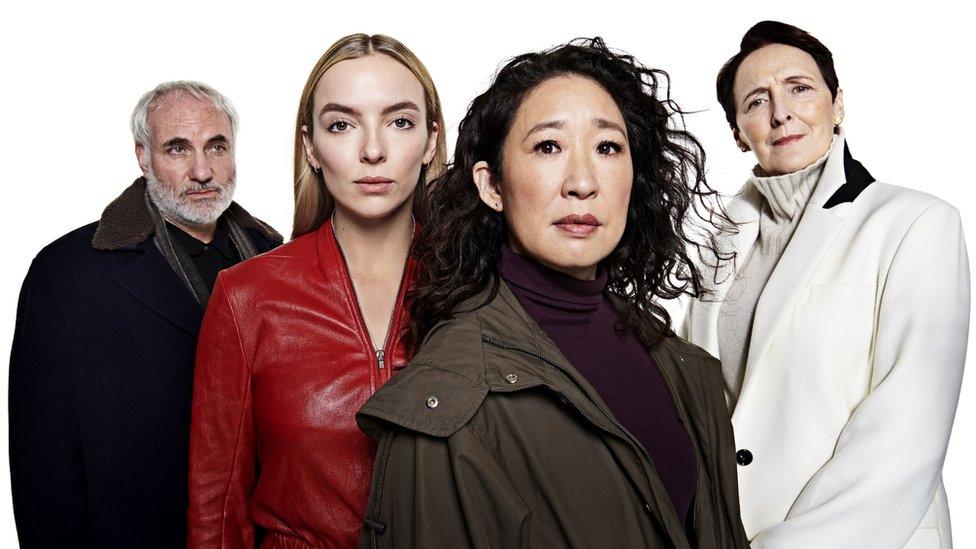The Luminaries: Warm reviews, but was it (literally) too dark?
- Published
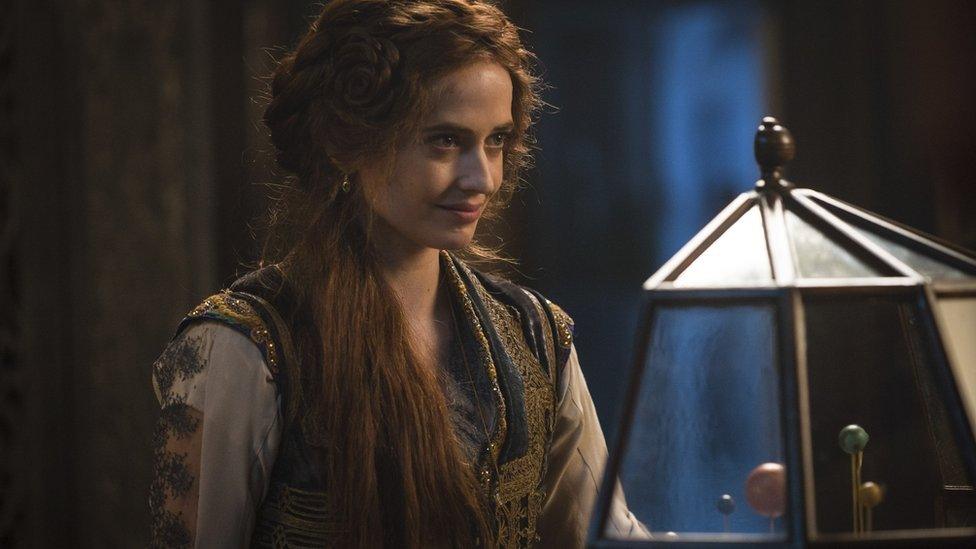
Casino Royale star Eva Green is among the cast of The Luminaries
BBC One drama The Luminaries has attracted criticism from some viewers and critics for its darkly lit scenes.
The first episode of the series, based on Eleanor Catton's Booker-winning novel, was praised in several reviews after its broadcast on Sunday night.
But The Telegraph and The Independent were among those commenting on the difficulties viewing certain scenes.
The show's director has previously said the dim lighting is deliberate and adds a "sense of mystery and intrigue".
The first episode of The Luminaries was watched by an average live audience of 5.3 million - the second highest launch for a BBC drama so far this year after The Salisbury Poisonings.
The Luminaries is set on New Zealand's South Island at the height of the 1860s gold rush, and Catton has adapted the book for the small screen herself.
'We can't see a thing'
"Here we go again with one of the BBC's dark dramas," wrote Anita Singh of The Daily Telegraph, external after the first episode aired. "I don't mean tonally, although The Luminaries is a tale of murder and weirdness. I mean, literally, dark.
"Look, I know they didn't have brilliant lighting in 19th Century New Zealand but help us out here, we can't see a thing. And it's not as if the rest of The Luminaries is particularly illuminating."
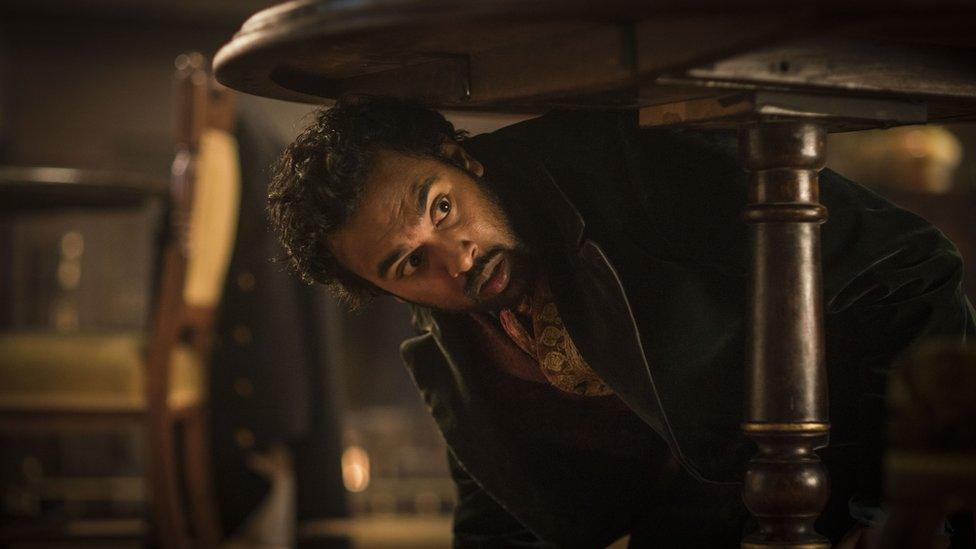
Himesh Patel, who has previously appeared in Yesterday, also stars in The Luminaries
The Independent's Ed Cumming, external awarded the show four stars, but noted: "Most things are unclear. The scene is gloomier than Wolf Hall in a candle shortage.
"We can discern echoing voices, gunshots, a warm-lit cabin, a travelling politician, a wounded Maori, but not much else."
In an otherwise positive review, The Sun's Jill Robinson said: , external "The first episode of the new drama wasn't perfect, as the flash-forward scenes were so dark, it was hard to tell what was happening.
"This took some of the impact away from some key scenes, and so, at times, The Luminaries needs to be a little more illuminating, otherwise they risk the wrath of viewers."
Many viewers on social media also pointed out the dim lighting, with some saying they had to turn up their brightness while watching.
'Adds to the mystery and intrigue'
However, director Claire McCarthy said in a previous interview the series was deliberately shot in this way.
"The colour palette is more gothic and grounded in the shadows. We wanted a sense of mystery and intrigue and a kind of burnished golden world inside the interiors," she explained.
"We were very influenced by gold and not only did we have to research how gold could be filmed, and how it would appear on screen, but also just the way that we would light largely through flame, candlelight and natural light.
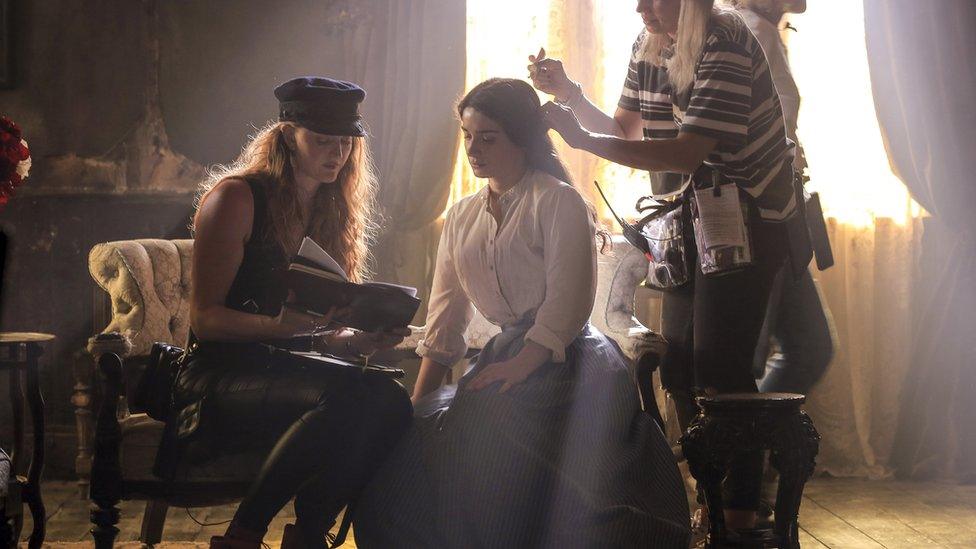
Eve Hewson, pictured during filming, plays Anna Wetherell in the series
"We were trying to inhabit the kind of world and the resources that they would have at that time so we embraced that as a visual aesthetic. We wanted there to be a visceral quality to the show, rather than it to feel typically period or dusty, and so there needed to be an energy and a dynamism to the way the camera captured the world."
This isn't the first time a BBC drama has attracted criticism for its dimly-lit scenes.
The corporation's 2015 production of Wolf Hall received a similar response, external - with many viewers and critics complaining about the darkness while praising the show overall.
What else did the critics say?
Some critics did not let dim lighting deter them from giving the show a positive review overall.
"It is glorious escapism, perfect for our times," wrote Lucy Mangan in The Guardian., external, awarding the first episode four stars.
"A cracking, challenging read has become a cracking, unchallenging series and both do their jobs perfectly. Joy.
"Characters-with-a-capital-C everywhere, more plot than you know what to do with, hares set running at every turn, lavish period detail and lighting replicating the novel's gorgeous staginess, and a convoluted murder-mystery."
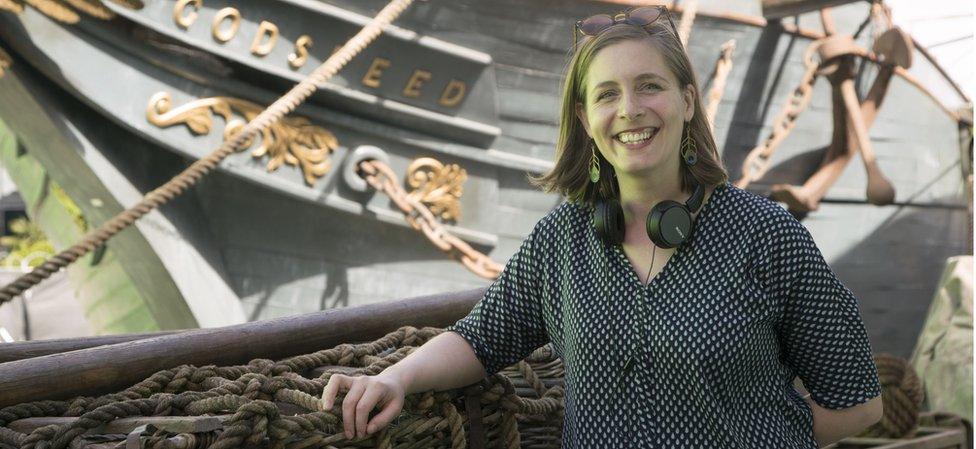
Author Eleanor Catton has adapted her Booker-winning novel for television herself
Writing in The Radio Times, Flora Carr said , external"All in all, Catton's choice to spin The Luminaries on its axis, with a new focus on the female perspective, feels fresh and needed.
"The sprawling novel was always going to be a nightmare to adapt, but by reintroducing us to the story via characters we barely met the first time around, Catton has managed to breathe new life into her tale."
Den of Geek's Louisa Mellor agreed, writing:, external "Catton has melted down her extraordinary novel and recast it into a new form, one that, despite some absence of heart, works far, far better than was ever destined.
"As the screenwriter adapting her own work, Catton has given The Luminaries a drastic rewrite, re-centring the story around the fate-pummelled romance of two of the novel's little-seen characters. The mystery and mysticism and complex connections are all still here, but bedded into a more stable set of events."
But in her review for The Telegraph, Singh said: "It sounds odd to say that a period drama feels dated. But the BBC has been doing such great work of late with modern-day dramas - Normal People, last week's Salisbury Poisonings, the extraordinary I May Destroy You - that The Luminaries seemed a stuffy throwback by comparison.
"It doesn't help that this sort of thing is best suited to autumn, when the nights are drawing in, but has been plonked in the middle of the summer schedule."
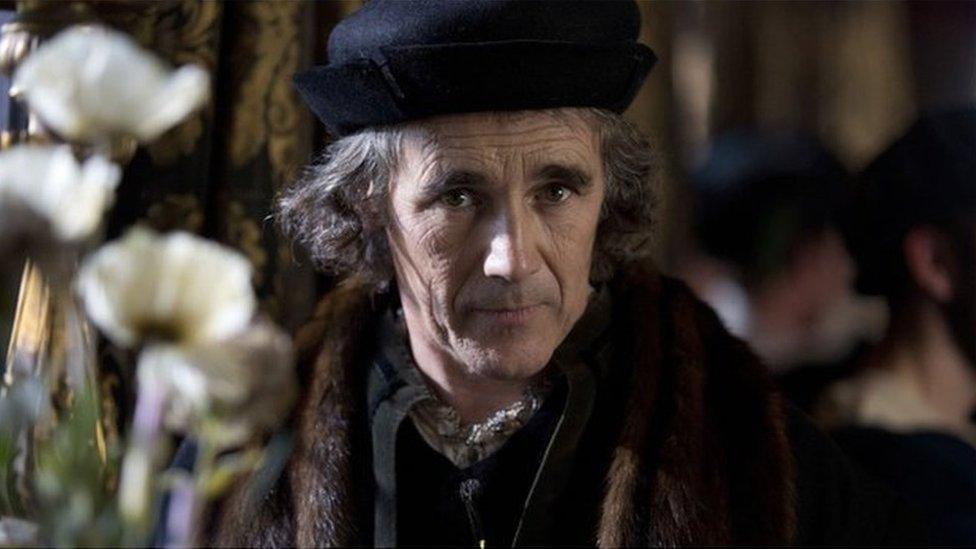
Wolf Hall, which starred Mark Rylance, also received complaints about dim lighting
In his review for The Independent, Cummings said: "The Luminaries is luminous, at least when it's visible... Greed has rarely looked so good."
But, he added, the series "feels crammed in... perhaps no production could fit so much plot into so limited a form."
"There's one lesson from art that would be lost on prospectors: less can be more. In trying to tell such a complex story, The Luminaries risks swamping its viewers. There's gold in those all-black hills, but as in every bonanza, it's hard to tell how much."
The Luminaries, broke two records when it won the Booker Prize in 2013.
At 27 years old, Eleanor Catton became the youngest ever winner, while the novel itself was the longest ever book to win, running at more than 800 pages.

Follow us on Facebook, external, or on Twitter @BBCNewsEnts, external. If you have a story suggestion email entertainment.news@bbc.co.uk, external.
- Published9 June 2020
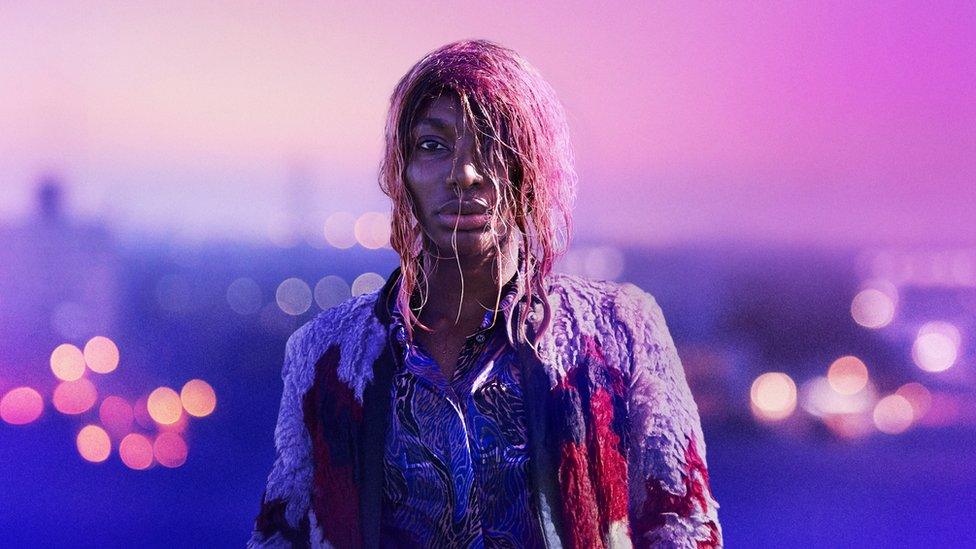
- Published8 April 2020
